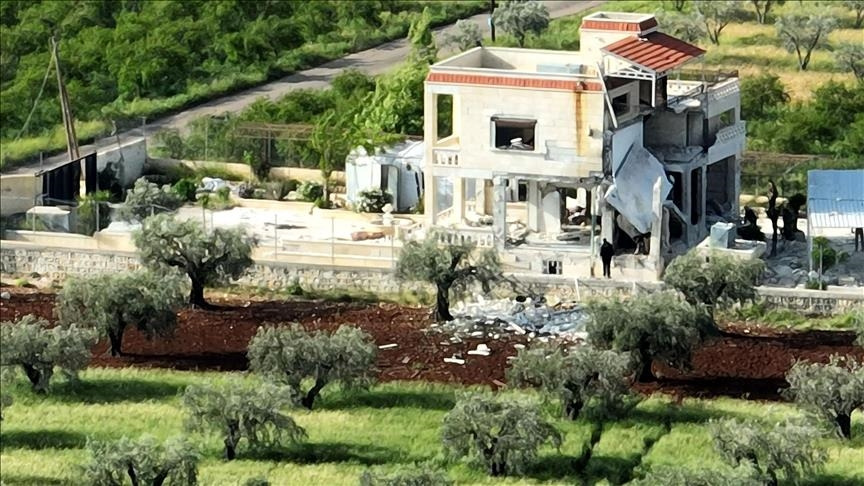On August 3, ISIS said that its former leader Abu al-Hussein al-Husseini al-Qurshi was killed in the northwestern Syria region of Greater Idlib by al-Qaeda-affiliated Hay’at Tahrir al-Sham (HTS), denying that he was neutralized in a Turkish special operation.
In a voice message released by the official al-Furqan Media, the terrorist group’s spokesman Abu Hudhaifa al-Ansari said that al-Hussein was killed in “direct clashes” with HTS militants in a town in the countryside of Idlib.
The previous spokesman of ISIS, Abu Omar Al-Muhajir, was captured by HTS along with several other members of the group in Idlib around the same time, al-Ansari said, adding that the group also captured female relatives of ISIS members and “blackmailed” them to reveal some “secrets”.
The spokesman went on to claim that HTS handed over the body of al-Hussein to Turkey as an “offering of loyalty” to President Recep Tayyip Erdogan ahead of the Turkish general elections last May.
Erdogan announced in April that Turkish intelligence forces had killed ISIS top leader in Syria, without providing much details.
“The suspected leader of Daesh, codename Abu Hussein al-Qurashi, has been neutralized in an operation carried out… by the MIT [National Intelligence Organisation] in Syria,” Erdogan said at the time, using the Arabic acronym for ISIS.
Back then, Turkish media released images of a fenced-off building in the middle of a field where it said he was hiding in the area of Afrin. The Turkish-occupied area is located in the northern Aleppo countryside and it borders Greater Idlib, which is ruled by HTS.
In his voice message, al-Ansari named Abu Hafs al-Hashimi al-Qurashi as the new leader of ISIS. As of now, nothing is known about the man.
HTS, previously known as the al-Nusra Front, was once an ISIS branch in Syria. After the rise of ISIS in 2014, a conflict began between the two terrorist groups.
Al-Hussein was the fourth caliph of ISIS. His death didn’t have any effect on the terrorist group’s operations in Syria or other countries. However, ISIS will likely attempt to avenge its leader by expanding its presence in Greater Idlib and targeting senior leaders of HTS.






